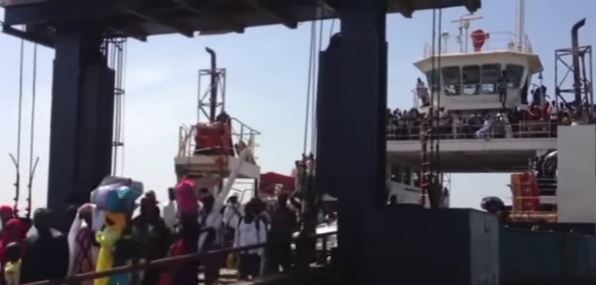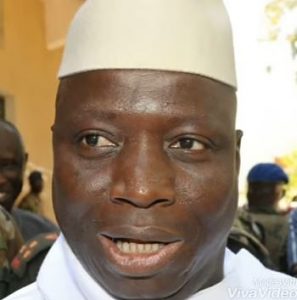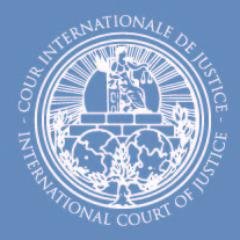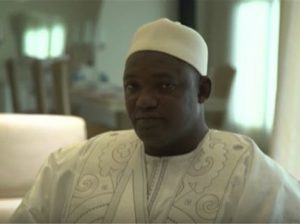
The Guardian / UK: The Gambian people are waiting for Yahya Jammeh, their former president, to leave the country after he finally agreed to step down following 22 years of rule.
In a midnight broadcast on state television after weeks of negotiation, Jammeh pledged to make way for Adama Barrow, the former estate agent who beat him in last month’s elections.
“The lion is still in Banjul,” said Lamin Fatty, a resident of nearby Bakau.
The Guinean president, Alpha Condé, and the UN’s regional chief, Mohammed Ibn Chambas, also remain in the capital, and a regional force is still positioned in the country, ready to move in if Jammeh changed his mind and again refuses to cede power.
Jammeh’s departure would herald the first democratic transition of power the Gambia has seen.
On his way out of the country after 12 hours of talks on Friday night, the Mauritanian president, Mohamed Abdul Aziz, told the Guardian that Jammeh would leave “as soon as conditions are met”.
Jammeh initially accepted defeat, but later rejected the election result and declared a national state of emergency in an attempt to cling to power.
The streets were deserted in the small administrative capital that surrounds the presidential residence, where vultures amassed in the grounds, but Bakau and Serrekunda were coming back to life.
Malick Njie, a young man selling T-shirts in the area of the city that has seen the biggest pro-Barrow celebrations in the past month, said: “Gambia has decided.
“I sold 200 this morning, and 1,500 yesterday,” he said, rustling in a large plastic bag full of banknotes for change. “Before, it was dangerous. We printed them and hid them.”
When she heard troops from the Economic Community of West African States were coming, Fatou Minteh bought enough food for her family to survive for three weeks, and they all hid at home. On Saturday morning, she was buying T-shirts for herself and her children.
“Three days ago, when you wore this you were arrested, but now we’re going to wear them to boot out the old president and welcome the new one,” she said.
“They say Gambia is divided, because the vote was split between him and Barrow, but his voters had three voting cards each. They voted three times. Gambia is not divided, we’re one people.”
Asitou Jallow, a traditional healer sitting on the pavement with her powders spread out in front of her, said Jammeh’s flip-flopping had hit her in the pocket.
“It’s been very quiet these past few days, nobody’s been out, though I was here. I’ve lost a lot of money for food and rent in these days. But now, thank God, we’re seeing people come out again, now that Barrow is president.”
As well as mysterious bottles of brown liquid and shrivelled-looking bundles, on Saturday she had new wares on display.
“Generally I sell herbal medicine, but today I’m selling photos of Barrow too. I like Barrow, and Jammeh has stepped down. I was a Jammeh supporter, but what can I do?”
Many Gambians chatted about the future, discussing what they would like Barrow to do first as president. Human rights organisations followed suit.
“Jammeh’s departure gives Gambia the chance to usher in an era based on respect for the rule of law and human rights,” said Jim Wormington, a west Africaresearcher at Human Rights Watch. “Barrow has the opportunity to nurture an open society in which diverse opinions, including peaceful dissent, are recognised as crucial for building a better country,”
Barrow, still across the border in Senegal, said he would get to work immediately on rebuilding the Gambia’s economy and righting the wrongs of the past 22 years.
“To all of you who were forced by political circumstances to flee the country, you now have the liberty to return home,” he said.
Most of the 45,000 people who have left the Gambia in recent weeks for fear violence have stayed where they are for now, reluctant to move until they hear Jammeh has really gone. Banjul ferry, one of the main routes in and out of the city, was deserted.
Sheriff Bojang Junior, however, a journalist whose criticism of Jammeh’s government led to to death threats that caused him to flee to Senegal, took Barrow at his word. He took a pirogue – a brightly painted wooden boat – across the Gambia river to his home city on Saturday morning, and looked about him, disoriented in the place he left 15 years ago.
“I felt we are free. All I needed was Jammeh saying he resigned,” he said. “Even though I had security concerns, his legitimacy came to an end, so I’m not bothered. It would just be rebels disregarding the constitution that would harm me.
“Hey! Give me one of those in XL,” he broke off, calling to a man selling Gambia Has Decided T-shirts.



